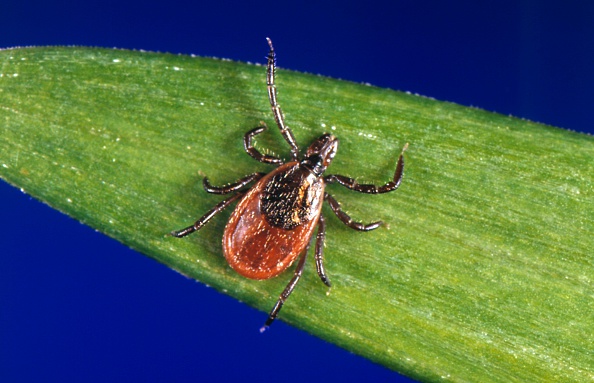Toronto health officials say the risk of acquiring Lyme disease in Toronto is low but are nonetheless advising residents to be on the lookout for blacklegged ticks as the weather begins to warm up.

The small arachnids are rarely found on lawns, grass, sports fields and paved areas but are known to frequent Algonquin Island, Morningside Park and Rouge Park.
Toronto Public Health says the blacklegged tick is the only type in Ontario which carries the bacteria that causes Lyme disease.

Get breaking National news
Symptoms include fever and chills, fatigue, headache, stiff neck, muscle and joint pains accompanied by a circular rash.
The City of Toronto has posted signs where blacklegged ticks are known to be found but are still telling people to take precautions while outdoors in wooded areas.
Some tips include staying on marked trails, wearing light-coloured clothing so ticks are easily seen and the use of insect repellent with DEET.
It’s also advised to check the your body and your pets after the outing is over.
If a tick is spotted, officials say the best solution is to quickly remove it from your skin as the creature requires only 24 hours to transmit the bacteria that causes Lyme disease.
Toronto Public Health says medical attention should be sought if you suspect you have been bitten and the symptoms get worse.
- Ontario city cracking down on ‘slum’ landlords who ‘ruin neighbourhoods’
- Ford government’s Bill 124 backpay cost increases again, closing in on $7B
- Ontario ends 2023-24 with nearly balanced budget, partly due to international tuition
- 1st-degree murder charges laid after 2 people shot dead at Keswick, Ont. park








Comments